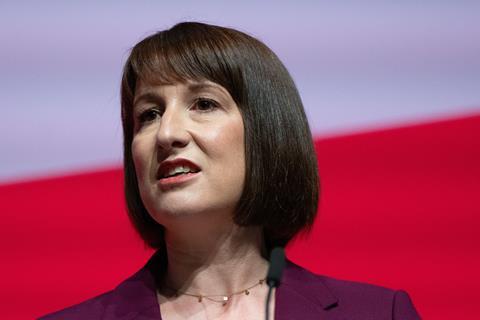Chancellor of the Exchequer Rachel Reeves will have to watch the Supreme Court’s hearing on motor finance claims from the sidelines it emerged yesterday, after the Treasury was refused permission to intervene in the high-stakes case.
The government had wanted to make representations when the case is heard in April, amid concerns that a victory for claimants could damage the motor finance industry.
But it emerged yesterday that Reeves has been denied permission to intervene, along with the Finance and Leasing Association and pro-claimant lobbying group Consumer Voice. The Financial Conduct Authority and National Franchised Dealers Association were allowed to intervene in the three-day hearing.
A Treasury spokesperson said: ‘We respect the court’s decision to not grant our application to intervene in the Hopcraft case and will monitor it closely.’
The government had asked to be involved in the case in order to see a ‘fair and proportionate judgment’ which allowed consumers to recover losses but also allowed the motor finance sector to continue. The Treasury cites figures from ratings agency Moody’s that consumer claims could top £30bn.

Read more
Three linked Court of Appeal judgments last October found that certain commissions paid to car dealerships for arranging loans had been unlawful.
In their joint ruling, Lady Justice Andrews, Lord Justice Birss and Lord Justice Edis said it would not suffice for lenders to ‘bury’ in the small print a statement about the terms and conditions of credit agreements. Informed consent, the judges concluded, requires the consumer to be told all material facts, including the amount of the commission and how it was to be calculated.
Alex Neill, co-founder of Consumer Voice, said it was disappointing to be refused permission to intervene while the dealers’ trade association was allowed.
She added: ‘An overwhelming majority of car finance customers have told us they are concerned about the practice of dealers being paid commission. And it’s little wonder, as people trust their car dealer to act in their best interests when arranging finance. Yet, this trust is clearly being abused by some dealers in the market.’
Manchester firm Consumer Rights Solicitors, which acts on two of the three motor finance cases going to the Supreme Court, suggested the government was trying to ‘wield some unwanted influence’ on judges by seeing to intervene.
In a joint article published last week, solicitors Esmaeil Momeni and Ovye Affi said: ‘The ethical implications of the government’s "intervention" appears questionable. Is it morally justifiable for the government to urge the UKSC to prioritise the interests of the car finance market and the economy over the interests of individual citizens in private proceedings between financial institutions and individual members of the public?
‘By attempting to protect the lending companies through its intervention and calling on the UKSC to consider extrajudicial factors in determining the appeal, the government is betraying the trust placed on it by the electorate who voted it into power.’
This article is now closed for comment.



























20 Readers' comments